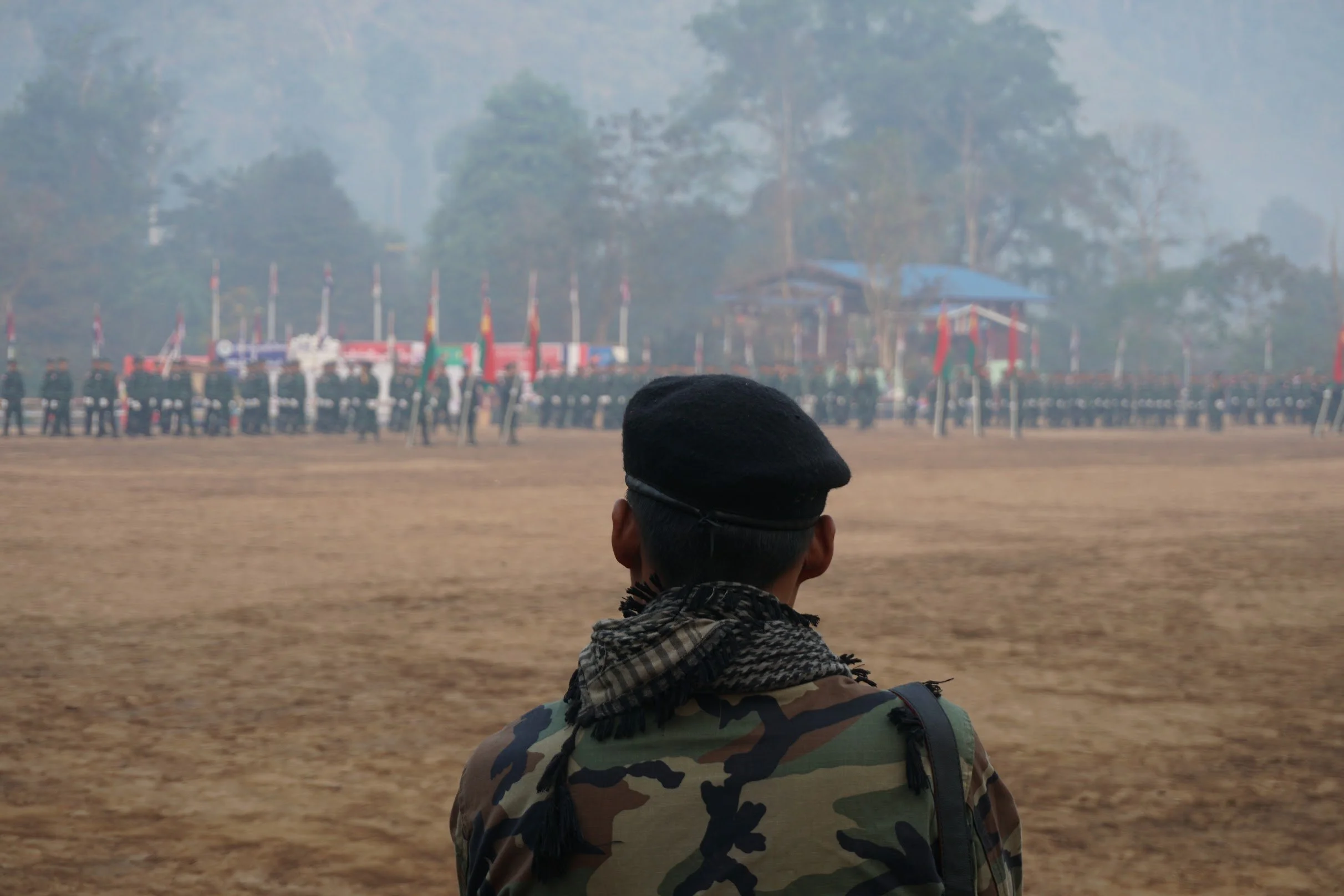The Future of Humanitarian Access
This discussion paper examines the collapse of key humanitarian access capacities in 2025 and outlines the shifts needed to sustain principled operations in increasingly fragmented and politicised conflict environments. It argues for a rebalanced, locally led and internationally enabled approach to access, and offers practical recommendations for donors, UN actors, and frontline organisations.
Armed Group Economic Policy: Towards a New Research Agenda
From Myanmar to Somalia, armed groups are shaping markets, setting economic rules, and pursuing international economic relations. This report challenges the narrow focus on illicit finance, showing how armed groups around the world regulate trade, allocate resources, and govern everyday economic life—sometimes more effectively than the state. Combining insights into four case studies and a comparative analytical framework, the report offers a new lens for understanding how non-state actors structure economies during conflict. For development economists, peacebuilders, and humanitarians, understanding these systems is essential. Effective aid, realistic economic policy, and meaningful engagement with conflict-affected areas all require a grounded view of how armed groups govern economies in practice.
Towards a deeper understanding of Myanmar’s People’s Defence Forces
This report explores how Myanmar’s armed resistance has evolved since the 2021 coup, focusing on eight People’s Defence Forces (PDFs) across the country. These include Autonomous Battalions like the Mandalay PDF and Bamar People’s Liberation Army—powerful, Bamar-led groups that work independently but maintain key alliances. It also examines Integrated Battalions, deeply tied to ethnic armed groups, like the Karenni Nationalities Defence Force (KNDF). In addition, the report covers mid-capacity Allied Battalions like CDF–Mindat, ABSDF, SAF, and PLA, which operate alongside ethnic forces while keeping some autonomy. Finally, it looks at Localised Battalions that may shift closer to allied status if support increases, such as the Southern Shan PDF. This report explores how Myanmar’s armed resistance has evolved since the 2021 coup, focusing on eight People’s Defence Forces (PDFs) across the country. The analysis includes Autonomous Battalions like the Mandalay PDF and Bamar People’s Liberation Army—powerful, Bamar-led groups that work independently but maintain key alliances. It also examines Integrated Battalions, deeply tied to ethnic armed groups, like the Karenni Nationalities Defence Force (KNDF). In addition, the report covers mid-capacity Allied Battalions like CDF–Mindat, ABSDF, SAF, and PLA, which operate alongside ethnic forces while keeping some autonomy. Finally, it looks at Localised Battalions that may shift closer to allied status if support increases, such as the Southern Shan PDF. Together, these case studies offer critical insight into the structure and fragmentation of Myanmar’s resistance—underscoring the need for context-specific engagement strategies rather than one-size-fits-all approaches.
Drone warfare and technological change in Myanmar
This briefing note shows that the widespread use of drones in Myanmar illustrates a technical and tactical shift for both the military (SAC) and resistance movements, reshaping how each side engages on the battlefield and responds to evolving capabilities. While resistance groups initially had a head start, they are now falling behind on the innovation curve and increasingly depend on low-cost adaptation to overcome resource constraints. The SAC, by contrast, has gained the upper hand through a newly acquired high-tech drone fleet drawing on Russian and Chinese technology. The decentralised and resource-limited nature of resistance drone warfare has spurred tactical innovation but also fragmented command structures, complicating efforts to scale coordinated operations. In addition, the report explores how the rise of drone warfare has opened up new roles for youth and women within resistance movements.
Shifting sands: Iran, the Axis of Resistance, and the war in Gaza
Shifting sands: Iran, the Axis of Resistance, and the war in Gaza – Q&A with Dr. Fatima Moussaoui
Urbicide in Khartoum: An Analysis of the Al-Amarat and Mayo Neighbourhoods, 2023–24
This report investigates how the war in Sudan is transforming Khartoum through acts of urbicide, the deliberate destruction of urban environments. It draws on satellite imagery, eyewitness testimony, and analysis of conflict dynamics to show how the deliberate tactics of the Rapid Support Forces and the Sudanese Armed Forces have reshaped the capital’s geography. The paper highlights explores how spatial control, infrastructure destruction, looting, and the targeting of symbolic and civilian spaces have become key tactics of the war.
Funding the People's Defence Forces in Myanmar
This report examines how Myanmar’s anti-coup resistance movement is being financed, offering a comprehensive analysis of how the People’s Defence Forces (PDFs) sustain themselves economically. Drawing on dozens of interviews with resistance actors, civil society, and international stakeholders, it sheds light on the diverse fundraising methods, ranging from crowdfunding to natural resource taxation, and explores how these practices are reshaping local governance, political legitimacy, and the broader trajectory of Myanmar’s war. The report confronts complex dilemmas around accountability, aid diversion, and international support, offering critical practical and operational insights.
Unlikely Allies: Engaging armed groups for the protection of cultural heritage
This findings report explores why and how armed groups engage with cultural heritage, offering new tools and insights for cultural protection in conflict zones.










